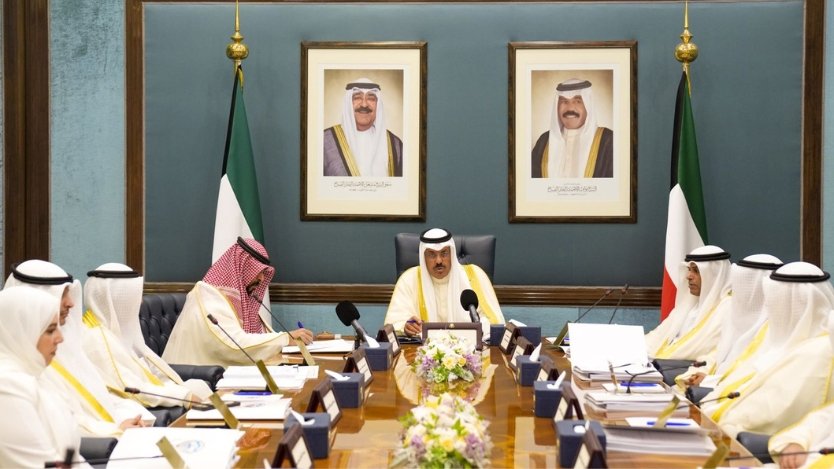
In the Name of Allah, the All-Beneficent, the All-Merciful.
May Allah bless Muhammad and his Family and damn their enemies.
The Minister of Interior of Kuwait has issued directives to restrict and limit the religious practices commemorating the martyrdom of the Master of the Youth of Paradise, and the Father of the Free, Imam Hussain (peace be upon him), such as the flag raising ceremonies, service processions, and mourning marches. Government-paid agents, accompanied by security forces, began implementing these directives in the country, with some processions being vandalised and forcibly removed as a result.
After informing His Eminence, Sheikh Al-Habib, the position was as follows:
His Eminence expressed his extreme anger at these provocative actions that are reminiscent of the Umayyads’ reign of terror. He holds the Shi’a dignitaries in Kuwait responsible for these violations because they refused to listen to his numerous warnings throughout the years against their no-limits approach of cooperation with the government by allowing them to have direct input and say in organising the religious Hussaini processions under the guise of ‘preserving peace and security.’ This led to the government having a free hand in controlling the ceremonies in a manner that went far beyond the scope of preserving security, going as far as to interfere in flag raising and mourning marches ceremonies, and even deciding when processions should end or what should and shouldn’t be said on the pulpits.
His Eminence rejects the government’s claims that the Hussaini processions are in violation of the law and the cause for their removal. He reminds Kuwait’s government that these processions – including the mourning marches – in addition to being essential, religious rituals guaranteed by the constitution and the law, are deeply rooted historical practices and traditions that existed far longer than the modern state of Kuwait has. The people of Kuwait have proudly practised these traditions for more than 150 years, and there is nothing the law prevents their existence. Rather, the role of the law is to adapt to ancient traditions and to protect them from extinction. However, Imam Hussain (peace be upon him) is above these worldly laws, because he was appointed as an authority – one who we must all follow – by God and his Messenger (God’s prayers upon him and his Household). Every man-made law must respect this superiority and supremacy; otherwise it is invalid. This is the case with All of God’s prophets and authorities upon this earth, as God (Glory be to Him) said: “Indeed, it is from Solomon, and it reads: ‘In the name of God, the Most Gracious, the Most Merciful, be not haughty with me but come to me in submission.’
His Eminence urges Kuwait’s government to reconsider its decisions before it is too late, and to remember that it was the Shi’a who preserved the rule of the Al-Sabah monarchy in the past, and continue to do so in the present. He warns them that restricting the religious freedoms of the Shi’a might, one day, lead to a fundamental review of this relationship with the Al-Sabah family, especially since this government is targeting their most precious rituals: the Hussaini rituals. If this arrogant policy by the government continues, it will lead it down a dangerous path that it will surely regret taking. The least of which can be said about the Kuwaiti regime is that it is an illegitimate government whose decisions are not constitutionally enforceable. It was, after all, the Emir of Kuwait who appointed this government without any basis in the constitution by violating it and suspending its implementation to enforce his will. So, from a constitutional viewpoint, the current system in Kuwait is entirely illegitimate, meaning that all its laws and decisions are null and void. Indeed, it is not the Shi’a of Kuwait who are in violation of the law, it is the Emir of Kuwait and his government.
His Eminence advises the Shi’a of Kuwait to challenge the laws that infringe upon their rights, and to not bow down to them. He urges them to raise the banners and flags that commemorate the martyrdom of Imam Hussain (peace be upon him) everywhere; to organise mourning procession and marches with no fear of consequences. They should not forget that these consequences will not exceed the usual fines or summons, and this is a small price to pay to make sure Imam Hussain’s (peace be upon him) name lives on. He surely deserves far more than that, and to keep the Hussaini ceremonies alive one must be willing to face the most hostile of all states, let alone a weak state like Kuwait. To ensure respect for the Shi’a religious rituals and practices, it is necessary to take to the streets and impose our religious beliefs; if we refrain from raising banners that carry the holy name of Imam Hussain (peace be upon him) simply because we are threatened, then no good will come out of us, and we will be undeserving of his mediation on the Day of Judgment. Our ancestors lost their limbs just to ensure the Master of Martyr’s (peace be upon him) name does not fade from memory, so will we not endure far less for his sake?
The Shi’a of Ali (peace be upon him) – as Imam al-Askari (peace be upon him) described – are those who do not fear: ‘whether death befalls them or they befall death.
Sheikh al-Habib





